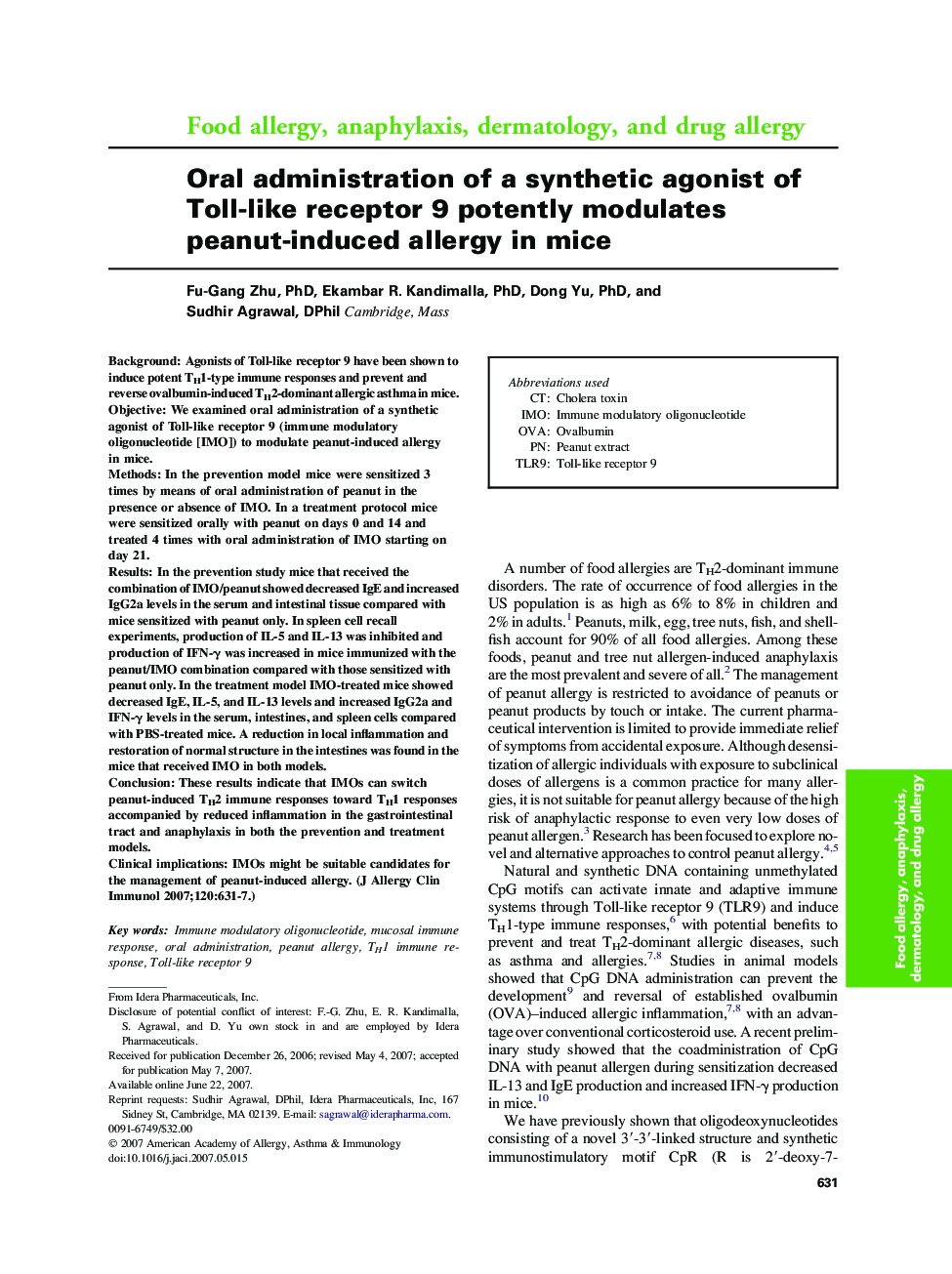| Article ID | Journal | Published Year | Pages | File Type |
|---|---|---|---|---|
| 3201967 | Journal of Allergy and Clinical Immunology | 2007 | 7 Pages |
BackgroundAgonists of Toll-like receptor 9 have been shown to induce potent TH1-type immune responses and prevent and reverse ovalbumin-induced TH2-dominant allergic asthma in mice.ObjectiveWe examined oral administration of a synthetic agonist of Toll-like receptor 9 (immune modulatory oligonucleotide [IMO]) to modulate peanut-induced allergy in mice.MethodsIn the prevention model mice were sensitized 3 times by means of oral administration of peanut in the presence or absence of IMO. In a treatment protocol mice were sensitized orally with peanut on days 0 and 14 and treated 4 times with oral administration of IMO starting on day 21.ResultsIn the prevention study mice that received the combination of IMO/peanut showed decreased IgE and increased IgG2a levels in the serum and intestinal tissue compared with mice sensitized with peanut only. In spleen cell recall experiments, production of IL-5 and IL-13 was inhibited and production of IFN-γ was increased in mice immunized with the peanut/IMO combination compared with those sensitized with peanut only. In the treatment model IMO-treated mice showed decreased IgE, IL-5, and IL-13 levels and increased IgG2a and IFN-γ levels in the serum, intestines, and spleen cells compared with PBS-treated mice. A reduction in local inflammation and restoration of normal structure in the intestines was found in the mice that received IMO in both models.ConclusionThese results indicate that IMOs can switch peanut-induced TH2 immune responses toward TH1 responses accompanied by reduced inflammation in the gastrointestinal tract and anaphylaxis in both the prevention and treatment models.Clinical implicationsIMOs might be suitable candidates for the management of peanut-induced allergy.
